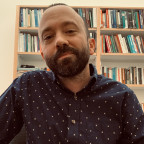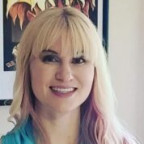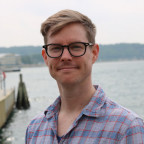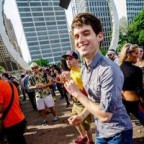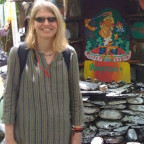“Migration and Democracy: A Response to Song on the State’s Right to Border Control” by: Colin Patrick (Lewis & Clark College)
In a recent paper, “Why Does the State Have the Right to Control Immigration?”, Sarah Song provides a defense of the right of liberal democratic states to control movement, especially in-bound movement, of people across their borders. Against arguments for border control that are based a) in the need to preserve cultural/national identity, b) on an analogy to the freedom of association inherent to personal relationships, and c) on an analogy to the right of exclusion inherent to property rights—all three of which she rightly finds insufficient in justifying the state’s power over its points of entry—Song presents a defense of border control centered in the “democratic self-determination of a people.” I contend that Song likewise falls short of justifying this particular state power, chiefly because such justification would require an account of how this power is to be “weighed against the migrant’s claim to enter”—a claim that lies, by definition, outside the scope of her conception of democratic self-determination, and which Song therefore sees, incorrectly I argue, as outside the scope of her argument.
“The Third Annual Jeffrey Douglas Jones Memorial Talk” by Elyse Purcell (The State University of New York at Oneonta)
While the COVID-19 global pandemic disrupted and endangered the health and welfare of people all over the world, there is one social group that has faced special discrimination in the aftermath of this world-wide catastrophe: people with disabilities. Within the United States, various response plans in Washington, Alabama, Kansas and Tennessee place the lives of people with disabilities in danger by rationing the care available.[1] Similarly, medical professionals in Europe and Asia have had to make difficult decisions when choosing whom to help when medical resources are so scarce.[2] Furthermore, children with special needs, such as those for autism or Down’s Syndrome, have had their services limited or curtailed within the United States.[3] Finally, workers with health conditions have been laid off or fired because their employers did not desire or were unable to pay for their needed health leaves.[4] The aim of this paper is to address these injustices by considering Iris Marion Young’s five faces of oppression – exploitation, marginalization, powerlessness, cultural imperialism and violence - affecting people with disabilities in our post-pandemic world.[5] I argue further that people with disabilities have been silenced by a fearful public concerning these matters and as a result, have suffered an epistemic injustice. I conclude by providing a new model for embodiment as a better guide for inclusion, care and differentiated solidarity.
“What Do We Owe the Very Poor?” with Per Milam
We will consider the duties of the affluent to those who are most disadvantaged.
“On the Unity of Moral and Intellectual Virtues” by Cassie Finley (Pacific University)
Since the revival of virtue ethics in the mid-20th century, there has been increasing interest in virtue theories within epistemology, aesthetics, political philosophy, philosophy of education, and beyond. Moving beyond virtue ethics’ focus on moral virtues, this aretaic turn in philosophy has led to the proliferation of putatively distinct kinds of virtues. However, relatively little has been said about how to understand the relationship between these kinds of virtues within contemporary virtue theories. I articulate a number of different potential relationships between moral and intellectual virtues, before turning to argue that a unified account of moral and intellectual virtues follows from an understanding of virtues as excellent, reliably motivated character traits. In addition to reintegrating virtue scholarship across domains, this proposed unity of virtues has significant implications within the context of virtue education.
“Pañcama, Mystical Consciousness that Encompasses Turīya” by J.M. Fritzman (Lewis & Clark College)
The Māṇḍūkya Upaniṣadteaches that consciousness has four forms: waking, dreaming, dreamless sleep, and turīya(the fourth). Miri Albahari and Ramakrishna Puligandla maintain that mystics in turīyaexperience their identity with ultimate absolute reality. They further claim that this mystical experience corroborates the ontology of Śaṅkara’s Advaita Vedānta, according to which ultimate reality is impersonal, only ultimate reality is real, and conventional reality is nonreal. A. G. Javadekar also accepts the Advaita ontology, but he denies that mystical experience corroborates it. However, some mystics report ultimate reality either as personal or as simultaneously impersonal and personal. Sri Ramakrishna and Swami Vivekananda describe another kind of mystical experience of ultimate reality which paraconsistently incorporates and encompasses all other kinds of mystical experiences. This article designates pañcama(the fifth) as the form of consciousness that encompasses turīya.
Philosophy Colloquium: Experiences of Depression, Existential Feelings, and Existential Change by Visiting Assistant Professor Devin Fitzpatrick (Lewis & Clark College)
Some feelings seem to color everything. While an emotion like fear is typically “intentional” or directed, being a fear of something, feelings like anxiety or dread are characterized by the vagueness of their object and by the way they pervade consciousness, potentially making any object appear as a threat. Matthew Ratcliffe defines these pervasive feelings as “existential feelings,” senses of possibility like “feeling alive” or “feeling deadened,” and argues that these feelings are “pre-intentional,” conditions of the possibility of the scope and valence of intentional states like beliefs or desires. Change in existential feelings, or “existential change,” may thus have sweeping effects upon a subject’s mental states. The category of the pre-intentional seems promising in accounting for experiences of depression. However, there remains a question of “bi-directionality”: how or if intentional states might affect the pre-intentional, such that changes in, say, beliefs might affect the possibility of existential change. I propose the introduction of a feeling-disposition distinction: existential feelings are not pre-intentional structures but ways of becoming aware of the “existential dispositions” that are pre-intentional structures. I then argue that existential dispositions, and the pre-intentional generally, are a category of states that are introspectively opaque and so ambiguous between being an intentional state, like a “quasibelief,” or non-intentional state, like a reflex. I will show that this redefinition clarifies how beliefs about what one’s experiences of depression signify may induce existential change that alleviates the suffering of these experiences.
The Northwest Pacific Conference at Lewis & Clark College
Matthew C. Altman (Central Washington University) will deliver the Keynote Address, What Do Philosophers Do?, on Friday at 1:30PM.
There is a $50 registration fee for the conference, payable online.
Papers in any philosophical area are welcome. The Northwest Philosophy Conference welcomes submissions from women and members of minority groups.
Philosophy Colloquium: Can Robots Become Sentient? Abhinavagupta’s Panentheism in Dialogue with Contemporary Neuroscience: Vimarśa and Integrated Information Theory (IIT 3.0) by Loriliai Biernacki (University of Colorado Boulder)
I address how sentience might arise using a comparative analysis of the nondual philosophy of the 11th century Hindu philosopher Abhinavagupta in relation to a contemporary, currently popular neuroscientific theory addressing the relation between the mind and the body, Integrated Information Theory (IIT 3.0). How it is that some things and entities are classified as sentient, while others are not? While much of Indian philosophy engages with the concept of consciousness, often writ in large and abstract terms, as cit or samvit, I suggest that Abhinavagupta’s articulation of consciousness as vimarśa may be better suited as a concept for determining the status of sentience. This analysis of Abhinavagupta’s panentheism, particularly with the concept of vimarśa, brings to the forefront a crucial and often somewhat overlooked premise underlying IIT 3.0’s ontological framework: the implicit and requisite assumption of subjectivity within materiality.
Philosophy Colloquium: Finding Out What I Don’t Know: A Week of Caribbean Philosophy by Liam Kruchten (Lewis & Clark College)
As an undergraduate student at a liberal arts college, there are few opportunities to develop relationships with graduate students and professors outside one’s home institution. This summer, I was lucky to attend the Caribbean Philosophy Association Summer School through a grant I received from SAAB at Lewis & Clark. CPA Summer School is a non-credit weeklong experience of transdisciplinary lectures, talks on graduate school and the job market, and 1:1 meetings with well-known scholars.
This summer focused on the theme “Shifting the Geography of Reason.” and featured a wide range of scholars. I will present my experience at the conference, give a brief overview of the different arguments presented each day and the philosophy behind CPA, explain how this experience will shape the duration of my undergraduate studies, and lay out other opportunities Philosophy majors can participate in.
